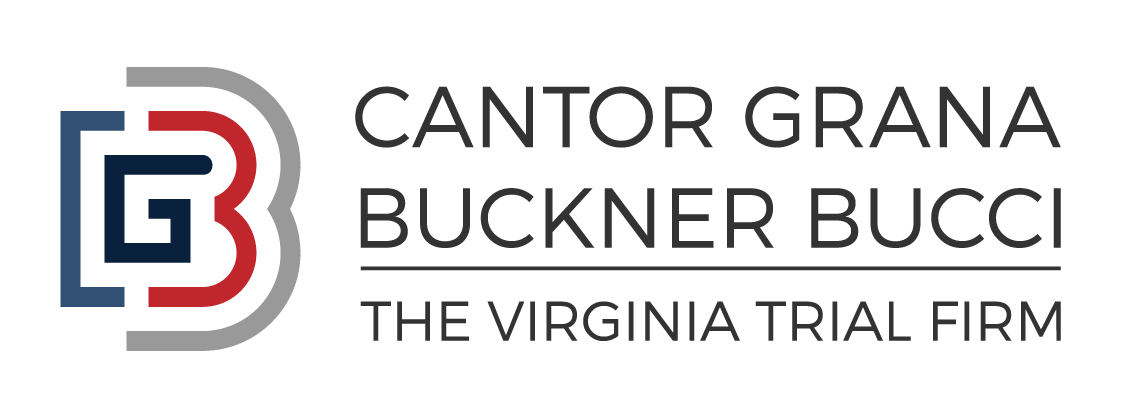Virginia Auto Insurance Requirements
If you are a driver in Virginia, you need to be familiar with the state’s car insurance requirements. In Virginia, drivers must either pay the uninsured motorist fee or carry a minimum of liability insurance and UM/UIM coverage to drive legally. This car insurance requirement applies to all vehicles registered in the state and any vehicle that passes through Virginia for more than 30 days. Understanding what type of car insurance coverage you need and how much can be tricky. This guide outlines the essential information in Virginia to ensure your car is always adequately insured.
Types of Coverage Required in Virginia
As of January 1, 2022, Virginia has introduced updated and revised minimum auto insurance coverage, reflecting the state’s commitment to enhancing driver protection and safety on its roadways. These new requirements encompass three key aspects of coverage: bodily injury liability, property damage liability, and uninsured/underinsured motorist coverage.
Liability Coverage
The state requires motorists to have liability coverage of at least 30/60/20:
– $30,000 for bodily injury or death of any one person
– $60,000 total per accident for bodily injury or death of two or more people
– $20,000 for property damage
Bodily Injury Liability
The new minimum bodily injury liability coverage now mandates a minimum of $30,000 per person and $60,000 per accident for Virginia drivers. This coverage protects against expenses arising from injuries or death caused to other individuals in an accident for which the policyholder is deemed at fault.
Property Damage Liability
Under the updated regulations, the minimum property damage liability coverage is now $20,000 per accident. This coverage provides financial protection for damages to another party’s property, such as their vehicle or other belongings, in an accident where the policyholder is at fault.
Uninsured Motorist Coverage
In addition to liability coverage, Virginia law also requires all motor vehicles registered in the state to carry uninsured/underinsured motorist (UM/UIM) coverage. This coverage must be at least 30/60 ($30,000 for bodily injury or death of one person and $60,000 total per accident for bodily injury or death of two or more people).
This type of coverage protects you if an at-fault driver has insufficient car insurance to cover all damages. Getting in an accident with an uninsured motorist can be detrimental to you if you are not covered by UM/UIM coverage. There are many reasons why uninsured motorist coverage is beneficial. It will pay for your medical bills, lost wages, and other expenses related to the injury or death resulting from the accident.

Increasing Your Coverage
While Virginia’s auto insurance laws mandate a liability coverage of 30/60/20, we advise opting for a policy with at least 100/300/50 in coverage limits. Although it may come with a higher annual premium, it offers greater protection compared to an auto insurance policy that merely satisfies Virginia’s minimum insurance prerequisites.
Proof Of Car Insurance
In Virginia, you are also required to carry proof of car insurance in your vehicle at all times. This document must include the name of the insurance company and its policy number, as well as the vehicle’s make and model. Always have this document when driving in case a law enforcement officer stops you.
Optional Car Insurance Coverage Available in Virginia
In addition to the mandatory minimum insurance requirements in Virginia, drivers have the option to purchase additional coverage to protect themselves, their family members, and their vehicles.
These optional auto insurance coverage options offer greater financial protection and peace of mind, especially when the minimum coverage is insufficient. From collision coverage to medical expense benefits, Virginia drivers have various insurance options to suit their needs and budget.
Collision Coverage
Collision coverage is an optional form of auto insurance that helps pay for repairing or replacing your vehicle if you are involved in a collision with another vehicle or object. This type of coverage can be beneficial if you have a newer or more expensive car, as it will cover the cost of repairs or replacements. For example, if your vehicle were to be totaled in an accident, collision coverage can help pay for the expense of a replacement vehicle.
Rental Car Reimbursement
Rental car reimbursement is an optional form of auto insurance that provides coverage for the cost of a rental car if your vehicle is damaged and you need to rent one while it is being repaired. This type of coverage can be beneficial if you often travel for work or pleasure. It will help cover the cost of a rental car if your own vehicle cannot be driven due to an accident.
Towing and Labor Costs
Towing and labor costs are an optional form of auto insurance that covers the expense of having your vehicle towed if it breaks down or gets stuck in an accident. This type of coverage will help cover the cost of towing services if you ever find yourself stranded with a broken-down car.
Gap Insurance
Gap insurance is an optional form of auto insurance that provides coverage for the difference between what you owe on your car loan and the actual cash value of your vehicle. This type of coverage can be beneficial if you have purchased a new car and are financing it. It will help cover any remaining debt on the loan if your vehicle is totaled in an accident before it can be paid off.
Medical Payments Benefits
Accidents can be expensive, and medical bills can quickly add up even if you have health insurance. If you are injured in an accident, your health insurance may not cover all of the costs associated with your injuries. In addition, if someone else is at fault for the accident, they may not have enough coverage to pay for all your medical expenses.
Medical payments benefits (med pay) is an optional form of auto insurance that covers medical expenses resulting from a car accident. Med pay covers the driver and passengers in the vehicle regardless of who was at fault for the accident and helps reimburse you or pay for medical expenses related to the accident.
Penalties for Driving Without Insurance in Virginia
In Virginia, driving without insurance is a serious violation. If a driver is caught without valid proof of insurance, they can face hefty fines, and their driver’s license and registration may be suspended. The initial fine for driving uninsured is $500, but repeat offenders may face higher fines of up to $1000. Additionally, the state may require uninsured drivers to pay a $500 uninsured motorist fee to the DMV for a limited driving privilege. In some cases, the driver might also be required to file an SR-22 form, a certificate of financial responsibility, for three years. It is essential to understand these potential repercussions, underscoring the importance of maintaining the appropriate auto insurance coverage.

Virginia Uninsured Motor Vehicle Fee
If you choose to take the risk of driving without car insurance in Virginia, you must pay a $500 uninsured motor vehicle fee (UMV Fee). By paying the fee, you can operate your uninsured vehicle at your own risk. However, this fee does not offer any insurance coverage. The uninsured motor vehicle fee must be paid annually for your vehicle registration to remain valid, and it cannot be canceled until proof of insurance has been provided.
Even minor car accidents are more expensive than you think. Since the UMV fee does not offer any insurance coverage, you remain accountable for any damages in case of an accident. You may have to pay entirely out of pocket. Thus, it’s advisable to have an insurance policy instead.
How to Find Affordable Car Insurance in Virginia
You can do various things to help keep your insurance premiums low. Auto insurance rates can vary in price depending on many circumstances. Here’s a sample of a few factors that can influence how much you pay for car insurance:
1. Driving record
2. Age and gender
3. Vehicle type, age, and condition
4. Location & zip code
5. Credit score
6. Insurance coverage level
7. Deductible amount chosen
8. Discounts available (i.e., multi-policy, safe driver)
Car Insurance In Virginia
In conclusion, the minimum car insurance requirements and options in Virginia are designed to protect drivers and their passengers in the event of an accident. Virginia car insurance laws mandate that all drivers have minimum coverage for bodily injury liability, property damage liability, and uninsured/underinsured motorist coverage. Beyond these minimum requirements, Virginia residents have several options for additional coverage, including collision, rental, and medical expense benefits. Virginia drivers must understand their insurance options, compare policies, and select the coverage that best suits their needs and budget. By doing so, they can ensure they are adequately protected in the event of an accident and avoid potentially devastating financial consequences.

The Car Accident Lawyers At Cantor, Grana, Buckner, & Bucci Are Here For You
If you have been involved in a car accident and are dealing with insurance companies, Cantor, Grana, Buckner & Bucci law firm can help. Our team of experienced attorneys understands the complexities of personal injury law, and we have experience representing clients in all car accident cases. We know that dealing with insurance companies can be frustrating and intimidating. We will work with you to protect your rights and ensure you receive the compensation you deserve. Contact us today to schedule a free consultation.












